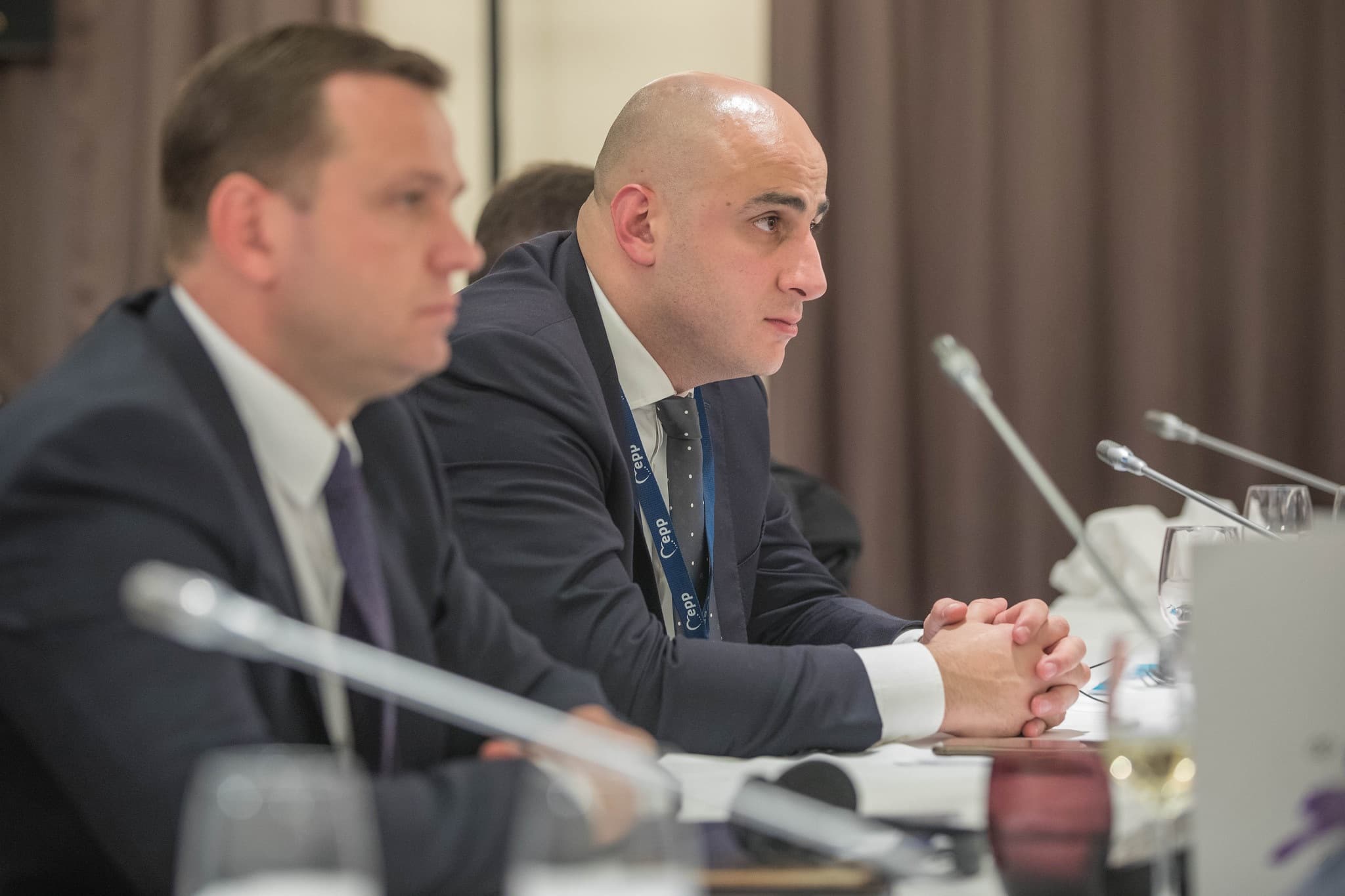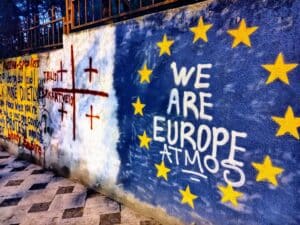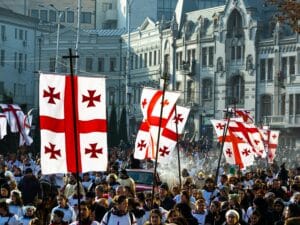The largest opposition party in Georgia, the United National Movement (UNM), has declared to enter parliament for the first time since it decided to boycott parliament. The 36 empty seats in Georgia’s parliament will be taken-up after UNM party leader Nika Melia had spoken to party members and supporters. On May 30 Melia declared that they “will enter parliament to liberate the Georgian state captured by oligarch Bidzina Ivanishvili”. In itself it a positive development to see a full-functioning parliament in Georgia, but the country’s politics remain polarized.
Despite EU-brokered deal the UNM boycott continued
On April 19 the ruling Georgian Dream (GD) party signed an agreement brokered by the European Union (EU) with opposition forces. Several opposition parties decided to lift their boycott of parliament. Many seats had remained unoccupied after the October 2020 elections, which the opposition parties claimed had been rigged. The agreement paved the way for political stability. However, the UNM failed the ratify the treaty, with only individual UNM members signing the document. The party promised to sign once Melia would be released.
Despite its promise, the UNM did not immediately sign the agreement after Melia was released on May 10. Melia stated that the UNM was “unsure” whether to enter parliament or not. The issue would be discussed in the following weeks, as Melia travelled to Ukraine to meet with former President of Georgia, Mikheil Saakashvili. He is the founder of the UNM, but has been barred from entering the country since 2014. Meanwhile, the UNM boycott of parliament continued. This finally changed after Melia’s statement on May 30.
UNM parliament boycott lifted, but agreement was not signed
After the statement, in which the UNM declared to enter parliament, the EU-brokered agreement remains without UNM signatures. The compromise proposed by the European Council President Charles Michel includes a “categorically unacceptable” clause. Although there was no exact reference, Melia referred to the amnesty bill that for the 2019 Tbilisi protest convictions. Melia voiced “biggest respects” to the EU though. Most notably, the agreement states that snap elections will be triggered if the GD fails to gain 43% of the vote in the upcoming local elections.
The EU responded by stating that it was “another positive step” that the UNM will enter parliament, but mentioned that it regretted the UNM’s decision not to sign the April 19 agreement. The EU made sure to emphasize the UNM’s responsibility in working together with other groups in parliament to implement the “ambitious electoral and judicial reform”, many of which were included in Michel’s document. Finally, the EU stated that signing the agreement would demonstrate the UNM’s commitment to Georgia’s Euro-Atlantic future.
Georgia’s politics remain polarized
The strong words used by Melia in his May 30 statement illustrate how tense the political climate remains. The hostile words towards the country’s most powerful oligarch and “retired politician” Ivanishvili do not pave the way to the “peaceful cooperation” within parliament that the EU called for. Ivanishvili is the founder of the GD. Even though he has not consistently been the party’s official leader since its establishment, and having retired after the 2020 elections, he is widely considered to be “pulling the strings” within the GD party and government.
The reactions of the GD to the UNM entering parliament, but failing to ratify the EU-brokered deal, also heated up the conflict. GD Chair Irakli Kobakhidze stated that the UNM taking up its mandates “has no value for the functioning of the legislature”. The UNM also would have “no resources to contribute positively to the functioning of a democratic system.” Hoping to convince the UNM to sign the agreement after all, the GD will refuse to invite the UNM to parliamentary groups working on the electoral and judicial reforms agreed upon in the treaty.
In his statement Melia said that the UNM “will fight against Ivanishvili everywhere, be it the parliamentary session hall, committee halls, halls of the Supreme Council of Adjara, squares, streets, villages, districts, mountains”. Such words do not suggest that Georgia’s political parties will suddenly join hands and start working solely on improving the country’s policies. The tug of war between the GD and the entire opposition will continue. However, it is already a huge step forward that this can take place in parliament now, instead of in the streets and in the court.
Sources: Civil1, Civil2, Euronews, GeorgianJournal GeorgiaToday, Reuters, Rferl, ToG
Image: Flickr (Nika Melia, European People’s Party meeting, 2017)



